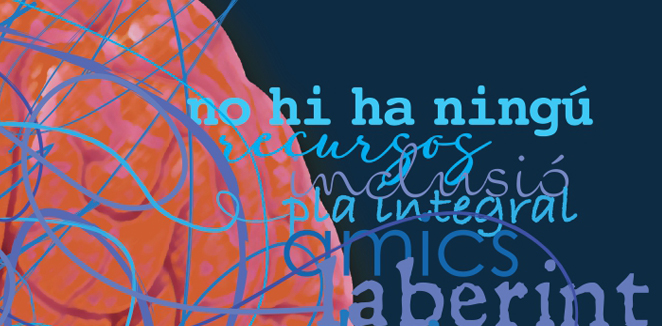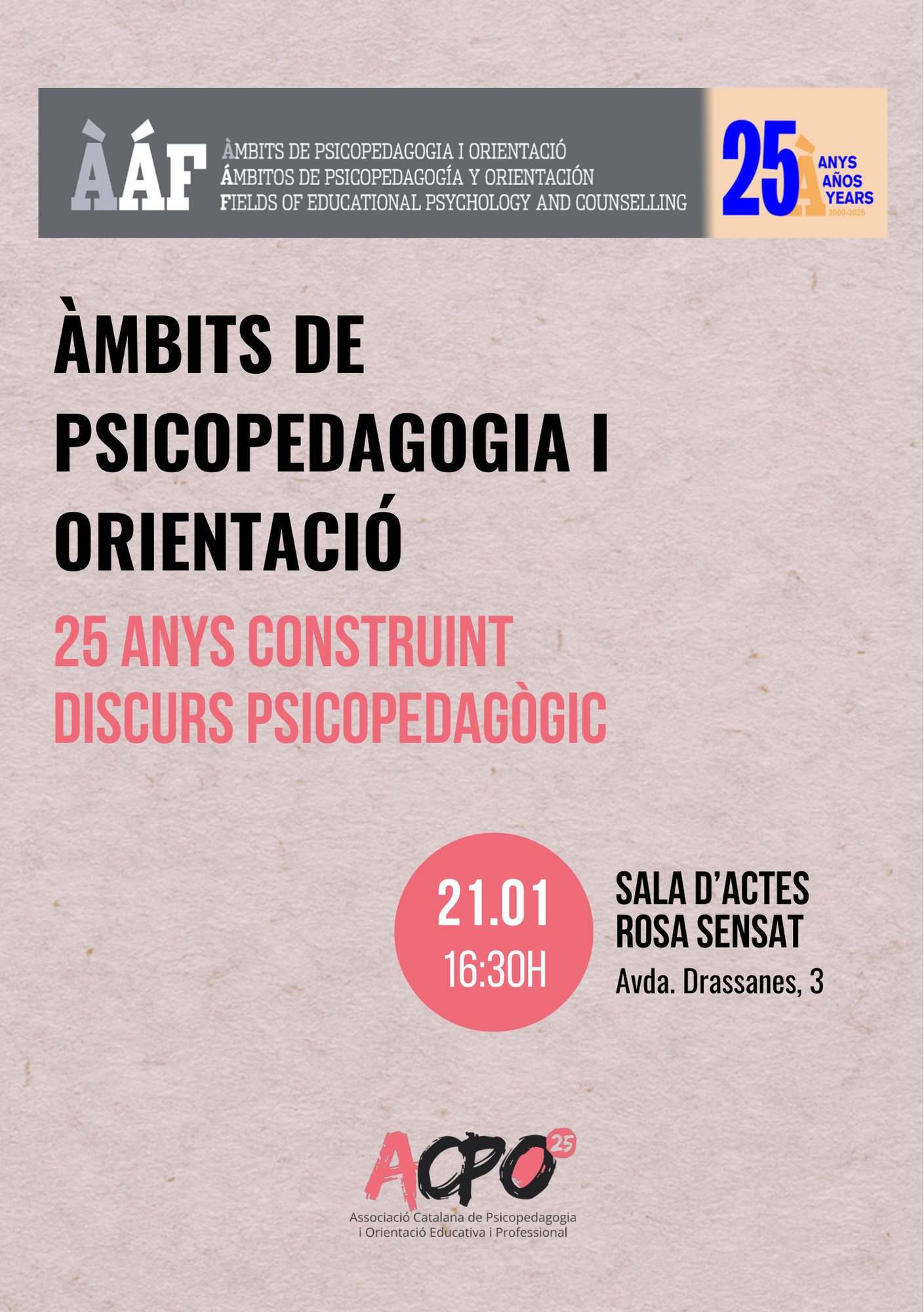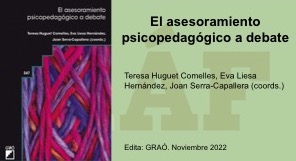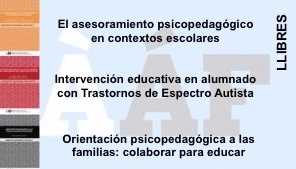L' acompanyament i l’orientació en la parentalitat a famílies en entorns de diversitat cultural: Ser mare al Pakistan, ser mare del Pakistan.
DOI:
https://doi.org/10.32093/ambits.vi55.5029Paraules clau:
Parentalitat, maternitat al Pakistan, migració,, benestar emocional, salut mental, desenvolupament infantil, gestió de la diversitat culturalResum
Un dels reptes a abordar en la societat actual és la interculturalitat i la gestió de la diversitat en els diferents espais en els quals convivim i ens relacionem les persones. Conèixer l’altre –a l’altre part de- és un primer pas per tal d’evitar l’estigma i generar espais inclusius en els quals oferir els recolzaments necessaris i ajustats a la realitat de cada família. L’objectiu d’aquest article, que sorgeix d’un projecte de tesi doctoral en curs que pretén avaluar la relació entre les pràctiques parentals i el desenvolupament infantil en població pakistanesa, és contribuir al coneixement d’una de les comunitats migrades més nombroses a Catalunya. En aquest article, com a pas previ al desenvolupament de la nostra recerca, explorarem algunes característiques pròpies de l’estructura i el funcionament familiar de les famílies pakistaneses, al país d’origen i en context de migració, i reflexionarem sobre aquells factors relacionats amb la cultura d’origen i el procés migratori que poden incidir en l’exercici de la parentalitat, i en especial de la maternitat, i influir en el desenvolupament dels fills i les filles en etapes primerenques.
Referències
Achotegui, J. (2009). Migración y salud mental. El síndrome del inmigrante con estrés crónico y múltiple (síndrome de Ulises). Revista de Servicios Sociales, 46, 163-171.
Aldgate, J. (2006). ‘Children, Development and Ecology’. In J. Aldgate, D. Jones, W. Rose & C. Jeffrey (eds.) The Developing World of the Child. Jessica Kingsley Pulishers.
Ali, M. (2008). Loss of Parenting Self-efficacy among Immigrant Parents. Contemporary Issues in Early Childhood, 9 (2),148-160.
Aruj, R. (2009). Causas, consecuencias, efectos e impacto de las migraciones en Latinoamérica. Papeles de Población, 14 (55), 95-116
Aubel J. (2012). The role and influence of grandmothers on child nutrition: culturally designated advisors and caregivers. Matern Child Nutr. Jan;8(1):19-35.
Ayala-Nunes L, Lemos I. y Nunes C. (2013). Predictores del estrés parental en madres de familias en riesgo psicosocial. Univ Psychol. Nov 11;13(2):529-39.
Berry, J. (2005). Acculturation: Living successfully in two cultures. International Journal of Intercultural Relations, 29(6), 697–712.
Bornstein, M. (2017). Parenting in acculturation: Two contemporary research designs and what they tell us. Current Opinion in Psychology, 15, 195-200.
Bornstein M. i Bohr Y. (2011). Immigration, acculturation and parenting. In Tremblay R. Boivin M., Peters R. (Eds.), Encyclopedia of early childhood development. Center of Excellence for Early Childhood Development.
Bronfenbrenner, U., & Morris, P. A. (1998). The ecology of developmental processes. In W. Damon & R. M. Lerner (Eds.), Handbook of child psychology, Vol. 1: Theoretical models of human development (5th ed., pp. 993 – 1023). New York:Wiley
Boyden J., Ling, B., i Myers, W. (1998). What works for working children. Stockhol:Save the Children. Sweden.
Burke J, Pardini D. i Loeber R. (2008). Reciprocal relationships between parenting behavior and disruptive psychopathology from childhood through adolescence. J.Abnorm Child Psychol. Jul;36(5):679-92.
Chung, E., Hagaman, A., LeMasters, K., Andrabi, N., Baranov, V., Bates, L., Gallis, J.A., O’Donnell, K., Rahman, A., Sikander, S., Turner, E.L., Maselko, J. (2019). Grandmother Involvement in Rural Pakistan: An Observational Study. Child Growth and Development.
Dabrowska A. i Pisula E. (2010). Parenting stress and coping styles in mothers and fathers of pre-school children with autism and Down syndrome. J Intellect Disabil Res. Mar;54(3):266-80.
de Haan, M. (2011). The reconstruction of parenting after migration: A perspective from cultural translation. Human Development, 54(6), 376–399.
Deater-Deckard, K. (2004). Parenting stress. Yale University Press.
Gallardo, A. (2019). Aculturación Parental: Una revisión de los desafíos y ajustes que implica el proceso de aculturación en las cogniciones parentales. Summa Psicológica UST 2019, Vol.16, Nº2: 121 – 129. ISSN: 0718-0446.
Giallo, R., Kienhuis, M., Treyvaud, K. i Matthews, J. (2008). A Psychometric Evaluation of the Parent Self-efficacy in Managing the Transition to School Scale. Australian Journal of Educational & Developmental Psychology, 8, 36- 48.
Kingston, D., Touh, S. i Whitfield, H.. (2012). Prenatal and postpartum maternal psychological distress and infant development: a systematic review. Child Psychiatry Hum Dev. Oct;43(5):683-714.
Lingam R., Gupta P. i Zafar S., (2014). Understanding care and feeding practices: building blocks for a sustainable intervention in India and Pakistan. Ann NY Acad Sci 1308:204–17.
Mäntymaa, M., Puura, K., Luoma, I., Latva, R., Salmelin, R. K., i Tamminen, T. (2012). Predicting internalizing and externalizing problems at five years by child and parental factors in infancy and toddlerhood. Child Psychiatry and Human Development, 43(2), 153–170.
Mumtaz Z. i Salway S. (2007). Gender, pregnancy and the uptake of antenatal care services in Pakistan. Sociology of Health & Illness 29, 1–26.
Østberg, S. (2003). Norwegian-Pakistani Adolescents: Negotiating Religion, Gender, Ethnicity and Social Boundaries. YOUNG, 11(2), 161–181.
Owusu-Bempah, K. i Howitt, D. (2000). Psychology beyond western perspectives. BPS Books.
Perreira, K., Chapman, M. i Stein, G. (2006). Becoming an American parent: Overcoming challenges and finding strengths in a new immigrant Latino community. Journal of Family Issues, 27, 1383-1414.
Rashid, S. (1996). Attachment through a cultural lens. In D.Howe (ed). Attachment and loss in child and family social work. Aldershot: Broomfield.
Roesr-Stier, D. (2001) Reducing risk for children in changing cultural contexts: Recommendations for the intervention and training. Child Abuse and Neglect, 25, 231-248.
Sameroff, A. (2009). The transactional model. In A. Sameroff (Ed.), The transactional model of development: How children and contexts shape each other (pp. 3-21). Washington, DC, US: American Psychological Association.
Selin, H. (2014). Parenting across cultures: Childrearing, motherhood and fatherhood in Non-Western Cultures. Springer Science Business.
Senturk, V., Abas, M., Berksun, O., i Stewart, R. (2011). Social support and antenatal depression in extended and nuclear family environments in Turkey: a cross-sectional survey. BMC Psychiatry, 11, 1-10.
Shafiq, S. (2021). Development of an individual in pakistani society. Reflections on historical, political, sociological, psychological and mental health aspects. Autoedición.
Sharma M, i Kanani S. (2006). Grandmothers' influence on child care. Indian J Pediatr 73:295–8.
Stein, A., Malmberg, L.-E., Sylva, K., Barnes, J. i Leach, P. (2008). The influence of maternal depression, caregiving, and socioeconomic status in the post-natal year on children’s language development. Child: Care, Health and Development, 34(5), 603–612.
Teti, D. i Gelfand, D. (1991). Behavioral competence among mothers of infants in the first year: The meditational role of maternal self-efficacy. Child development, 62 (5), 918-929.
Woodhead, M. (1990). Psychological and cultural contribution of children’s needs. In A. James and A. Prout (eds). Constructing and Reconstructing Childhood. Farmes Press.

Descàrregues
Publicades
Número
Secció
Llicència
Els autors/ores conserven els drets d'autor i concedeixen a la revista el dret de primera publicació de l'obra, registrada sota una llicència Creative Commons Reconeixement-NoComercial-Sense Obra Derivada. Aquesta llicència permet la descàrrega de les obres, i que es puguin compartir amb altres sempre que se’n reconegui l'autoria, però no permet que siguin modificades de cap manera, ni ser utilitzades amb finalitat comercial.
















